|
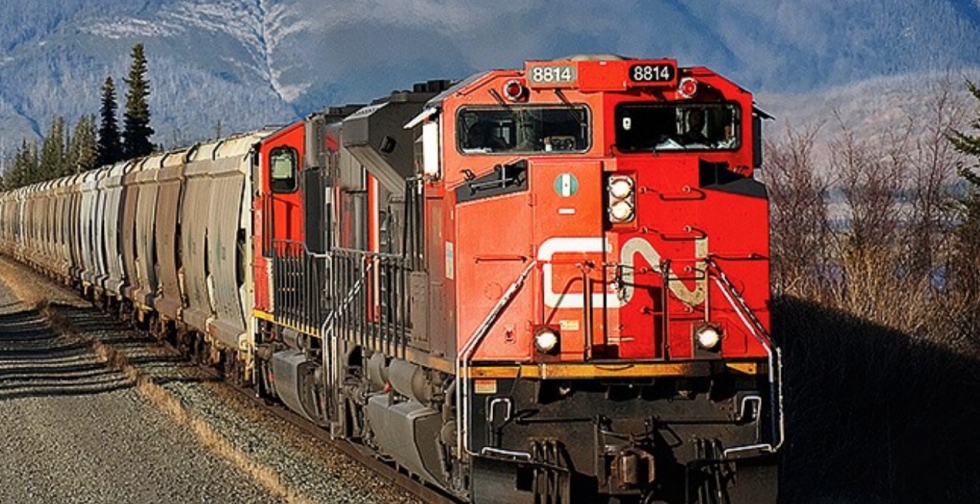
Canada's Forest Sector Calls for Action on Supply Chain Woes
Feb. 2, 2022 (Forest Products Association of Canada) - When Federal Transport Minister Omar Alghabra and his colleagues host a discussion on Canada’s supply chain [Jan. 31], the forest products sector and its workers will be looking for leadership from Ottawa to address a transportation system that is too often fragile and under-performing.
Canada’s forest industry provides more than 225,000 direct jobs across over 600 communities – many of which are hundreds of kilometres from larger cities and key customer markets.
A resilient and reliable transportation system is critical to Canadian forestry’s ability to meet increasing global demand for our products, keep forestry workers working, and improve economic conditions in rural and northern forestry communities.
“There are three main issues we need collective action on – future-ready infrastructure, rail service reliability, and the labour force of tomorrow,” noted Forest Products Association of Canada (FPAC) President and CEO Derek Nighbor. “For one, bottlenecks in key corridors are repeatedly slowing our supply chain down and hurting our global competitiveness. Getting to the bottom of issues in frequently congested spots like BC’s Lower Mainland must be a top priority of this discussion,” Nighbor said.
The industry will also be raising the issue of rail service reliability. Canada’s railways have an important and difficult job to do. Unfortunately, there is a recurring problem with too many mills simply not getting rail cars when they need them. This can have a negative impact on customer relationships and confidence, especially as more and more customers in Canada and around the world are turning to forest products for their climate benefits. Labour supply challenges are an ongoing concern as well, especially as it relates to truck driver shortages across the country.
“We are a reasonable group in Canadian forestry. We understand there are going to be system delays when the weather is bad or when our transportation partners are dealing with employees off sick because of COVID-19,” Nighbor added. “But over the past few years there have been way too many Groundhog Day moments. There are systemic issues that absolutely require solutions for the long-term and we look forward to working with the federal government and our transportation and labour partners on a plan for action,” he concluded.
The Forest Products Association of Canada (FPAC) provides a voice for Canada’s wood, pulp, paper, and wood-based bio-products producers nationally and internationally in government, trade, and environmental affairs. As an industry with annual revenues exceeding $75B, Canada’s forest products sector is one of the country’s largest employers operating in over 600 communities, providing 225,000 direct jobs, and over 600,000 indirect jobs across the country.
SOURCE: FPAC |
|
|
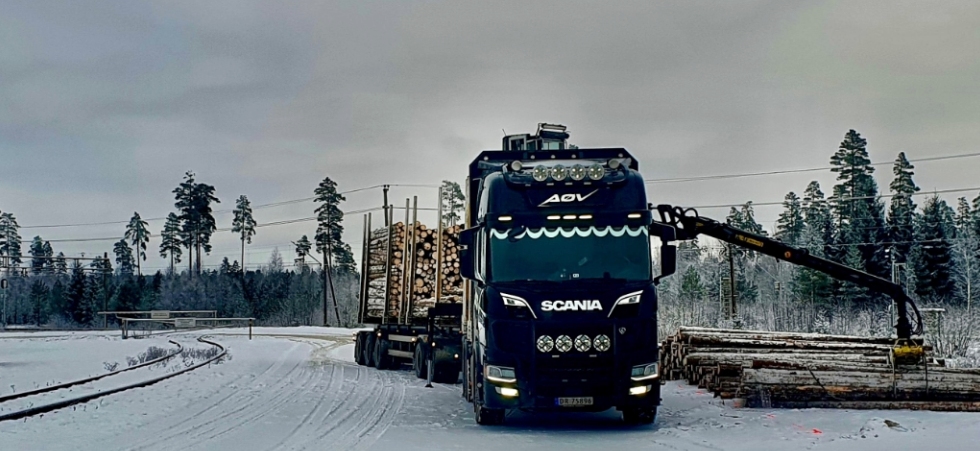
Minister of Transportation to Attend Railroad Timber Terminal Opening at Hauerseter in Norway
Jan. 12, 2022 - Norske Skog at Saugbrugs, in collaboration with Nortømmer and Viken Skog have established the company Tømmerterminal Hauerseter AS, a privately owned railroad terminal for loading timber by rail. On Wednesday 19 January, the official opening will be attended by Norwegian Minister of Transport Jon-Ivar Nygård.
“The green transition requires that our inbound and outbound transport from the mills takes place with emission-free transport solutions. While we achieve lower carbon emissions and costs, there will now also be fewer heavy trucks transporting timber on our roads. A further development of the railway network and the terminal structure until 2050 will be a prerequisite for the implementation of the green transition in the industry and the fulfillment of Norway's emission obligations in the Glasgow agreement,” says Sven Ombudstvedt, CEO of Norske Skog.
Between 100,000 and 150,000 cubic meters of timber will be transported annually via the timber terminal, mainly spruce pulpwood to Norske Skog Saugbrugs in Halden. This amounts to somewhere between 2,500 and 3,750 timber truckloads a year.
Geographically Well Located
The terminal at Hauerseter is located just north of Gardermoen. It is thus geographically well located compared to other timber terminals. Hauerseter will relieve the other terminals, contribute to a sharp reduction in the number of timber trucks on the roads and reduce the transport distance from the forest in the area around the terminal.
The background for the establishment of the terminal is, among other things, a challenging capacity situation at Norsenga timber terminal in Kongsvinger. In addition, there are bottlenecks with driving a large number of timber trucks via Oslo.
First Timber Delivered
“The terminal, which is located at Hauerseter in Ullensaker municipality, has been established by a private initiative. Recently, we have put in place the necessary approvals from both Jernbanetilsynet and BaneNor to be able to load and transport timber by railway,” said general manager Tor Henrik Kristiansen in Viken Skog.
The first timber transporters delivered timber to Hauerseter on 23 December, and the first timber train left the terminal early January.
Norske Skog is a leading producer of publication paper with market positions in Europe and Australasia. The Norske Skog group operates four mills in Europe, of which two will produce recycled containerboard following planned conversion projects. In addition, the group operates one publication paper mill, a converting grade mill and one wood pellets facility in Australasia. To learn more, visit: www.norskeskog.com
SOURCE: Norske Skog |
|
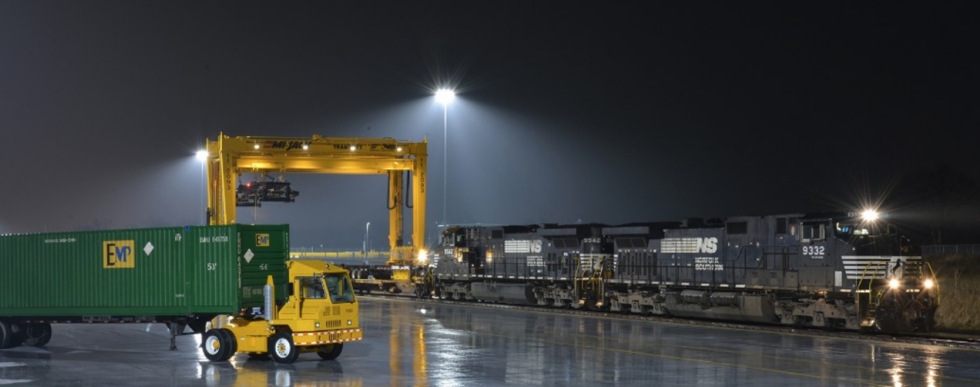
Norfolk Southern Rolls Out Pilot Incentive Program for Intermodal Shipping Partners
Dec. 23, 2021 - Norfolk Southern has rolled out a pilot incentive program for intermodal shipping partners that aims to drive market efficiencies, grow capacity at its international intermodal terminals, and advance key sustainability goals.
The Dual Mission Reward Program is being tested at Landers Intermodal Facility in Chicago, the company’s largest terminal handling international freight, and at the railroad’s Kansas City Intermodal Facility. Under the industry-first pilot, truck carriers and steamship lines can earn a $200 incentive every time a drayage driver brings in and departs with a shipping container, completing a “dual mission.”
Norfolk Southern developed the initiative while brainstorming with customers and truckers on ways to help unclog pandemic-related bottlenecks across the transportation supply-chain. Beyond increasing efficiencies, the initiative has the potential to generate significant sustainability benefits.
“Trucks leaving the terminal that were formerly empty now become loaded, productive miles for the truckers,” said D’Andrae Larry, group vice president of international marketing at Norfolk Southern. “The amount of truck time saved by gaining an immediate load versus leaving the terminal to find a load, the emissions reduction, the employee productivity gains are all wins for sustainability in the marketplace.”
At Landers alone, Norfolk Southern calculates the initiative has the potential to eliminate roughly 46,000 truck trips, reduce fuel use by 546,000 gallons, and avoid over 5,600 metric tons of carbon emissions annually if truckers complete a dual mission at least 50% of the time.
“This program offers an innovative solution to a supply-chain issue that’s a win for everybody – the truck drivers, the environment, local communities, and us,” said Josh Raglin, chief sustainability officer at Norfolk Southern. “This is a perfect example of how we are applying a sustainability mindset to everyday business situations.”
Norfolk Southern plays a vital role in the global marketplace. Over the past three years, the railroad has transported an average 1.5 million containers and trailers annually of international goods that move on rails, trucks, and ships during some part of their journey between the United States and Asia, Europe, and other global destinations. That’s roughly 20% of the company’s total average traffic volumes in those years.
Currently, truckers who deliver an international container to a Norfolk Southern intermodal terminal leave empty about 85% of the time. That’s due largely to marketplace challenges associated with coordinating the journey of containers between customers in the U.S. and abroad. Norfolk Southern pays the $200 reward once a truck carrier or steamship line completes dual missions at least half the time over a certain period.
Increasing fluidity and throughput of freight moving through the terminals creates capacity, enabling Norfolk Southern to support customers’ growth while sharing an incentive with the marketplace, Larry added.
“We continually look for ways to partner with our customers and the marketplace to drive efficiency and achieve our goals for growth and productivity,” Larry said.
Customers seeking additional information about the program can contact Norfolk Southern Intermodal Customer Service at 800-497-2919.
SOURCE: Norfolk Southern |
|
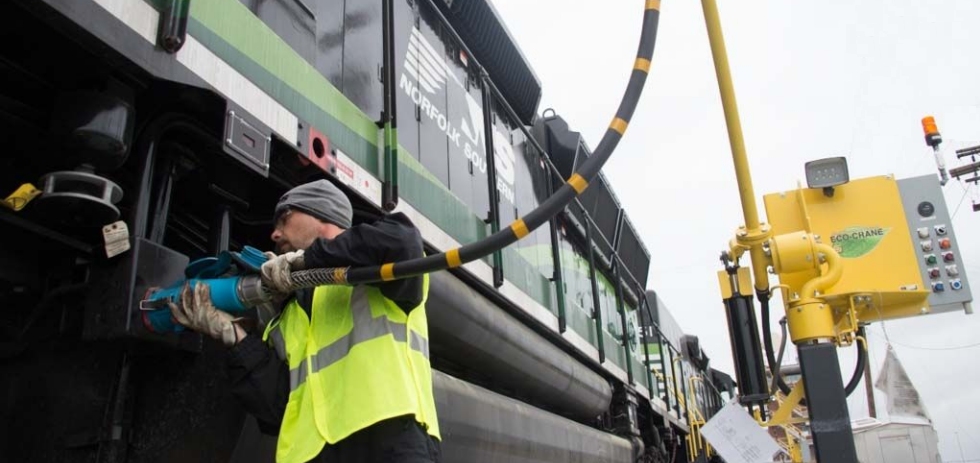
Norfolk Southern Earns Leadership Rating from CDP
Dec. 8, 2021 - Norfolk Southern has been awarded an A- climate change rating by CDP, the leading carbon disclosure system for the global business community. The rating places Norfolk Southern in CDP’s highest rated tier, the Leadership Level.
The achievement was largely driven by Norfolk Southern’s pursuit of a science-based emissions reduction target for efficiency, targeting a 42% reduction by 2034 from 2019, announced earlier this year. The company made a 7% reduction in carbon emissions intensity in 2020 alone. Additionally, the company’s ongoing participation in forest carbon projects and efforts to source clean energy for Norfolk Southern facilities also played a critical role. Looking to the future, Norfolk Southern is driving toward further locomotive fuel efficiency and increasing the use of biofuels.
“Reducing our carbon footprint is central to how we operate our company – it’s good business and good for the planet,” said Norfolk Southern chief sustainability officer, Josh Raglin. “Whether that’s through more efficient locomotives or setting aggressive goals for ourselves, we aim to make the most environmentally friendly way to move freight over land even more sustainable. Importantly, our efforts also have a positive impact on the carbon footprint of our customer’s supply chain operations.”
Rail is one of the most sustainable ways to move the goods that power our economy, moving 45% of the long-distance freight in the U.S. but producing only 7% of all freight-related emissions. Norfolk Southern has adopted technologies and smart operating practices that have improved the fuel efficiency of its locomotive fleet, which accounts for the vast majority of its emissions. The company improved locomotive fuel efficiency by 5% in 2020 and has improved by an additional 3% year to date.
CDP is a non-profit organization that administers the most widely used carbon disclosure ratings across the world. Norfolk Southern was among the first companies to begin voluntary reporting its greenhouse gas emissions in 2009.
SOURCE: Norfolk Southern |
|
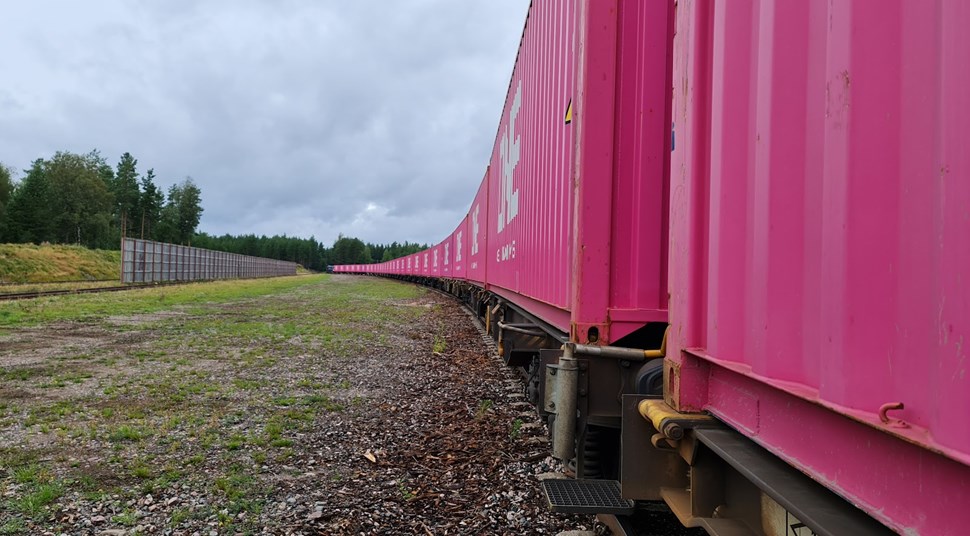
New Rail Shuttle from Middle Sweden to Port of Gothenburg Boosts Forest Product Exports
Aug. 30, 2021 - A new rail shuttle is about to begin transporting timber products from Malungsfors in Dalarna to Asia via the Port of Gothenburg. The new shuttle will generate substantial carbon savings and logistical benefits, consolidating the port as the principal hub for the export of Swedish timber products.
The driving force behind the newly established rail shuttle is the Fiskarheden sawmill, working in close collaboration with the forwarding company Träfraktkontoret. The first train to depart will carry 32 40-foot containers from the Japanese shipping company ONE and will arrive at the Port of Gothenburg on 30 August.
Previously, timber products were transported by road via the Port of Gävle. The new arrangement via Gothenburg offers both logistical benefits and carbon savings. Transporting freight from the Fiskarheden facility in Malung-Sälen by rail to the Port of Gothenburg and on to the final destination in Japan reduces the carbon footprint of each container from 406 to 207 kilos of carbon dioxide per TEU (20-foot container)*.
Fiskarheden – which produces more than 370,000 cubic metres of sawn timber per year, of which more than 90% is purchased outside Sweden – has invested heavily in the transformation of the rail terminal in Malungsfors to facilitate container handling. They are now all set to go with a modern, highly efficient facility.
“The fact that we can handle and stuff containers here in Malungsfors is a major step forward. It is a long-term investment that will open up new markets for us via the Port of Gothenburg and it is definitely the right path to follow in our ambition to reduce our climate footprint,” said Magnus Larsson, Fiskarheden chief executive.
“It is an impressive and highly focused investment that we are undertaking here in Malungsfors. It is inspiring to see that many companies in the forest industry are choosing the Port of Gothenburg to a greater extent and that the port can contribute to reinforcing the international competitiveness of the forest industry by offering frequent departures, an efficient, climate-smart service, and direct transportation to the continent,” said Richard Mellgren, Senior Business Development Manager at the Gothenburg Port Authority.
High Demand for Swedish Forest Products
The forest industry has for a long time been a cornerstone of Swedish basic industry with annual exports totalling 145 billion kronor (2020)**. More than 80% of Swedish forest products are sent abroad (23.4 million tonnes in 2020), making Sweden the fifth-largest forest product exporter in the world. The trend in Sweden has been positive for many years and particularly so in recent times with exports rising by 6% since 2018.***
The use of wood in a variety of sectors, including the construction industry, is growing as a more climate-smart alternative to steel and concrete. New areas of use are emerging with forest products replacing plastic and other non-degradable materials in the manufacturing of clothing, chemicals, hygiene products, and technical components.
According to Magnus Larsson, a whole series of factors are coming together to make Swedish forest products particularly attractive on the world market.
“The trademark of Swedish forest products is quality. Slow-growing trees produce high-quality raw material with a good structure, complemented by the first-rate delivery assurance offered by Swedish forest product companies.”
References:
* According to calculations from IVL, Swedish Environmental Institute.
** Swedish Forest Industries Federation.
*** Statistics Sweden.
SOURCE: Port of Gothenburg |
|
|